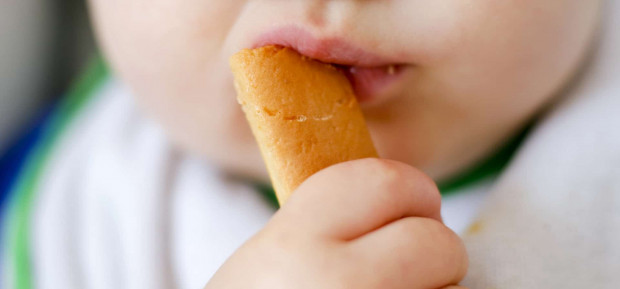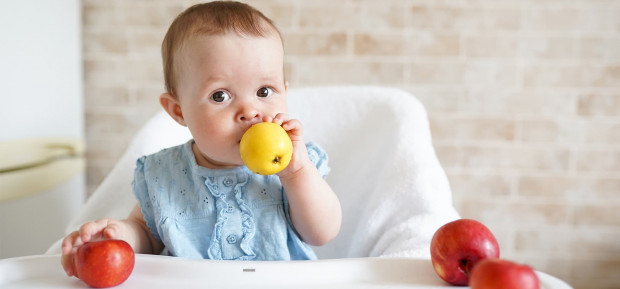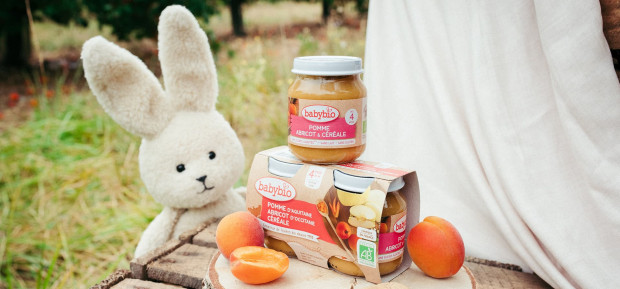The 5 best practices for more responsible consumption with babies
Your baby has started to diversify and you want to give meaning to this adventure? Don't worry, we are here to help you. Adopting the right gestures and good practices for responsible and sustainable consumption: nothing could be easier. Here are 5 tips to put in place from the start to give your baby a healthy, tasty and nature-friendly diet.
1/ Favour ingredients from organic agriculture
Whether it is for our well-being or for the environment, there are many reasons to eat organic food! Organic ingredients meet strict specifications that guarantee agricultural practices that are more respectful of biodiversity and the environment. A regulation that imposes the use of green manure, that promotes a high level of animal welfare, that protects the quality of soil and groundwater, that prohibits the use of GMOs, etc... so many initiatives that are good for baby and for the planet.
Did you know that?
The organic regulation is a European regulation, it is the logo in the shape of a leaf which is obligatory in Europe and which attests the respect of the specifications of the organic agriculture. The AB logo is a national logo and is optional in France.
2/ Favouring regional origins
In order to have a more responsible consumption with baby, we advise you to favor local ingredients. Favoring the agriculture of our regions, it is to encourage a proximity agriculture, to participate in the good remuneration of the French producers and to value the short circuits with a minimum of intermediaries and transport.
3/ Eat seasonal ingredients
Consuming seasonal fruits and vegetables allows us to offer baby ingredients grown in accordance with their natural cycles. An ingredient harvested at the right time will preserve its nutritional and gustatory properties better, and there's nothing like it to help baby discover the real taste of food.
4/ Buy products made in France
Sustainable consumption also means consuming French products! In this way, we participate in the local economy by making the companies of our regions work while guaranteeing a certain know-how. But be careful, made in France is not synonymous with French ingredients, it is important to remain attentive on the origin of the latter.
5/ Give a second life to your products
Last good practice to adopt to be at the top in your green reconversion: recover all the packaging and organic waste after a meal with baby. You can set up a composter in your garden to make a green fertilizer from meal leftovers and fruit and vegetable peelings. And for packaging, pay attention to the sorting instructions mentioned on the packaging. You can also find original ideas to give a second life to your packaging: a small pot to plant seeds to germinate, a candle jar, etc. Creativity has no limits when it comes to making a more respectful gesture for nature.
And for even more advice, listen to episode 9 "Eco-friendly baby: seeds for the future" of our series of Babybio Podcasts dedicated to baby's development:
So are you ready to make a small but lasting change in your consumption habits with baby? It's up to you!


